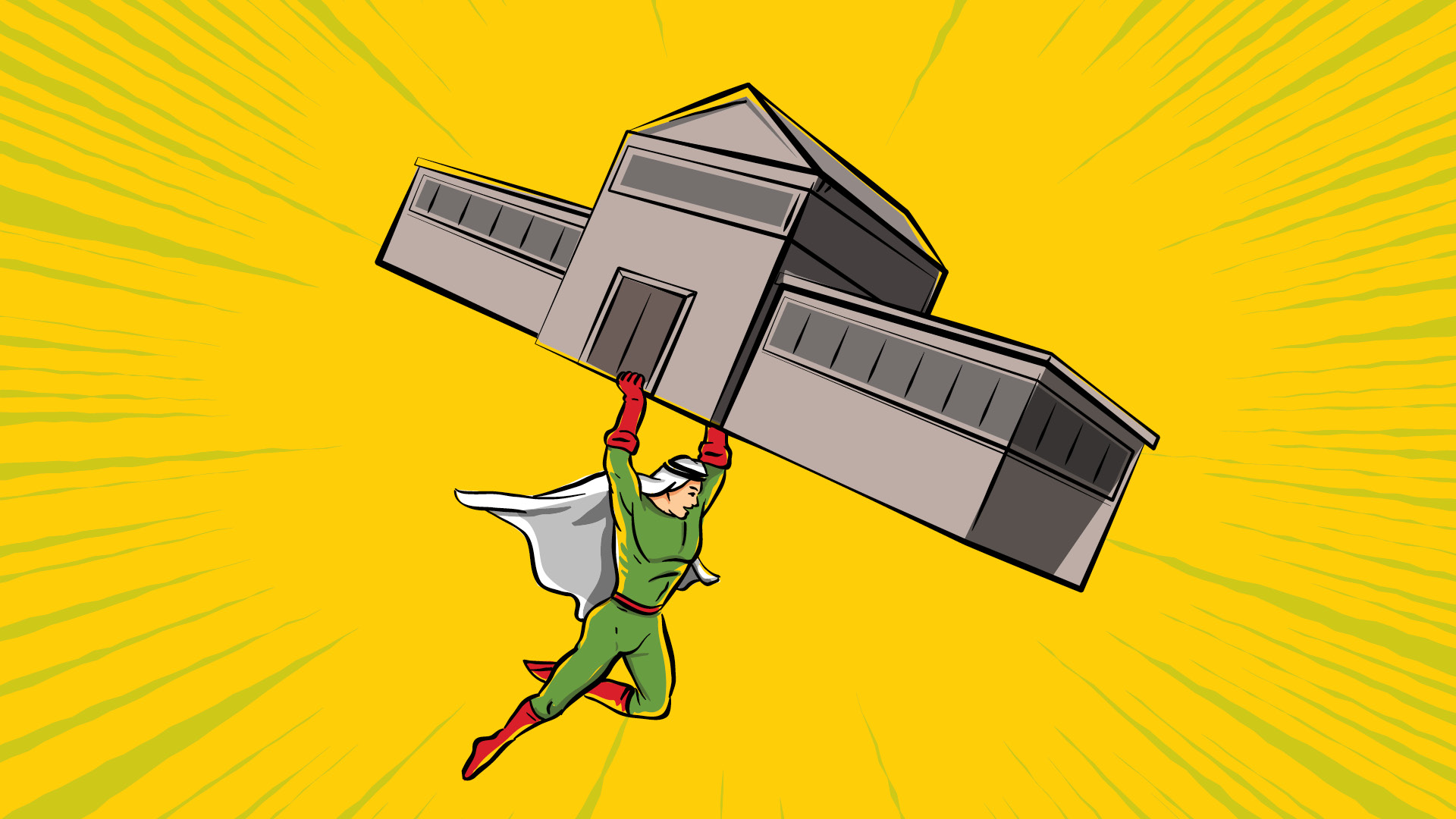- Arbitration
- Banking & Finance
- Capital Markets
- Commercial
- Competition
- Construction & Infrastructure
- Corporate / Mergers & Acquisitions
- Corporate Services
- Corporate Structuring
- Digital & Data
- Dispute Resolution
- Employment & Incentives
- Family Business & Private Wealth
- Innovation, Patents & Industrial Property (3IP)
- Insurance
Find a Lawyer
Book an appointment with us, or search the directory to find the right lawyer for you directly through the app.
Find out more
Level Up: Unlocking Financial Potential In The Middle East
Welcome to this edition of Law Update, where we focus on the ever-evolving landscape of financial services regulation across the region. As the financial markets in the region continue to grow and diversify, this issue provides timely insights into the key regulatory developments shaping banking, investment, insolvency, and emerging technologies.


2025 is set to be a game-changer for the MENA region, with legal and regulatory shifts from 2024 continuing to reshape its economic landscape. Saudi Arabia, the UAE, Egypt, Iraq, Qatar, and Bahrain are all implementing groundbreaking reforms in sustainable financing, investment laws, labor regulations, and dispute resolution. As the region positions itself for deeper global integration, businesses must adapt to a rapidly evolving legal environment.
Our Eyes on 2025 publication provides essential insights and practical guidance on the key legal updates shaping the year ahead—equipping you with the knowledge to stay ahead in this dynamic market.
The leading law firm in the Middle East & North Africa region.
A complete spectrum of legal services across jurisdictions in the Middle East & North Africa.
-
Practices
- All Practices
- Banking & Finance
- Capital Markets
- Commercial
- Competition
- Construction & Infrastructure
- Corporate / Mergers & Acquisitions
- Corporate Services
- Corporate Structuring
-
Sectors
-
Country Groups
-
Client Solutions
Today's news and tomorrow's trends from around the region.
17 offices across the Middle East & North Africa.
Our Services
 Back
Back
-
Practices
- All Practices
- Banking & Finance
- Capital Markets
- Commercial
- Competition
- Construction & Infrastructure
- Corporate / Mergers & Acquisitions
- Corporate Services
- Corporate Structuring
- Digital & Data
- Dispute Resolution
- Employment & Incentives
- Family Business & Private Wealth
- Innovation, Patents & Industrial Property (3IP)
- Insurance
- Intellectual Property
- Legislative Drafting
- Private Client Services
- Private Equity
- Private Notary
- Projects
- Real Estate
- Regulatory
- Tax
- Turnaround, Restructuring & Insolvency
- White Collar Crime & Investigations
-
Sectors
-
Country Groups
-
Client Solutions

- Law Firm
- /
- Insights
- /
- Law Update
- /
- August 2019
- /
- What Property Rights are available for the Investors/Developers in the Education Sector in Dubai and Abu Dhabi?
What Property Rights are available for the Investors/Developers in the Education Sector in Dubai and Abu Dhabi?
Mohammed Kawasmi - Partner - Real Estate / Family Business
 Investors looking to develop schools or other education assets in the UAE must consider how they will develop or acquire their facilities and what type of property rights to acquire.
Investors looking to develop schools or other education assets in the UAE must consider how they will develop or acquire their facilities and what type of property rights to acquire.
The acquisition of property rights that are limited in time (i.e. other than the purchase of freehold properties) is a financially sound way of reducing the amount of upfront capital expenditure that would need to go in to developing education facilities such as schools.
In this article, we look at how education investors in Dubai and Abu Dhabi can use a Musataha right or a long term lease right to develop school facilities and we discuss the advantages of each property right and the other options available for foreign investors based on the rules of property ownership for foreigners.
1. What is a Musataha Right?
A Musataha right is a property right that gives the owner of the Musataha the right to build, own and use the building during the term of the Musataha. The maximum term for a Musataha agreement is 50 years as per the rules of the Civil Code. In Abu Dhabi, Law No. 19 of 2005 Regarding Property Ownership provides clearly that this term is renewable for a further term of 50 years.
Article 1353 of the Civil Code defines a Musataha right as “a property right conferring upon the owner thereof the right to build a building or to plant on the land of another.” The Musataha right gives the owner thereof the right to use the property and the right to build and improve the property.
However, the owner of a Musataha right is required to remove the building on the land and return the land to the landlord or may be required to leave the building on the land if requested by the landlord at the expiration of the term of the Musataha. Article 785 of the Civil Code states:
“If the lessee has constructed a new building or planted plants in the thing leased, even with the consent of the lessor, the lessor may, upon the expiration of the lease, either require him to demolish the building or remove the plants, or he may take over ownership of the new buildings or plants placed there for such value as they would have if removed if the destruction or removal thereof would cause harm to the property, and if the demolition or removal would not cause harm to the property, the lessor may not require that they remain there without the consent of the lessee.”
While dealt with in the Civil Code, we recommend that the ‘make good’ obligations of the owner of the Musataha right are considered carefully by the parties and documented in the Musataha agreement as this is a commercially important issue. Considerations should include who bears the costs of removal, timeframes for removal of the buildings, what condition the land should be returned to the landlord and, if the owner of the Musataha right is required to leave its buildings on the land, what compensation is payable by the landlord etc. If the Musataha agreement is silent on the ‘make good’ obligations of the owner of the Musataha right then Article 785 of the Civil Code will apply.
2. What is a Long-term Lease Right?
Dubai Administrative Resolution No. 134 of 2013 defines a long-term lease as a lease for a term of more than 10 years and up to 99 years.
Long-term leases must be registered in the Real Property Register in the Dubai Land Department (the ‘DLD’) pursuant to the requirements of Article 9 of Dubai Law No. 7 of 2006.
It is important to note that the Tenancy Laws are not applicable to long-term leases and the Rental Dispute Settlement Centre does not have jurisdiction over long-term lease disputes.
In Abu Dhabi, leases for a period of more than four years must be registered with the real estate register in Abu Dhabi Municipality pursuant to Article 6 of law No. 3 of 2005 otherwise it will not be recognised and has no legal effect except between the contracting parties.
3. Where can Foreign Education Investors own a Musataha Right or a Long-term Lease Right in Dubai and Abu Dhabi?
In Dubai, education investors that are incorporated in the UAE and which are wholly owned by UAE or GCC nationals (or are individuals that are UAE or GCC nationals) have the right to be granted a Musataha right, long-term lease or any other type of property rights in any area in Dubai pursuant to Article 4 of Law No. 7 of 2006 concerning Real Property Registration (the ‘Dubai Property Law’). The Dubai Property Law also requires registration of a long-term lease right with the DLD in order for it to have any legal effect.
For foreign education investors in Dubai, the option of a long-term lease right is available where the education facility is being developed in those areas designated for foreign ownership as determined by the Ruler of Dubai (‘Designated Areas’). Foreign education investors wanting to use premises for schools in areas which are outside Designated Areas must look at other ways to secure premises, e.g. use short-term leases or consider whether an exemption is available. For example, the Dubai Property Law provides that a Public Joint Stock Company is exempt from this rule and can own a property right over premises in any area in Dubai. It is important to note that any side agreement attempting to circumvent the rules of property ownership by foreigners is void and will not be recognised as the court will consider the owner of the property right is the one who has his title registered with DLD.
In Abu Dhabi, foreign education investors (including those entities wholly owned by GCC nationals or who are GCC nationals) will face similar challenges if they want to use premises for schools outside Designated Areas since they will be limited to taking a four-year lease of the existing premises. A long-term lease agreement, Musataha agreement and all property rights must be registered with the Abu Dhabi Municipality (the ‘ADM’) pursuant to Law No. 3 of 2005 Concerning the Regulation of Properties in Abu Dhabi (the ‘Abu Dhabi Property Law’) for it to be enforceable.
4. What is the Difference between Long-term lease Right and Musataha Right?
A Musataha right and a long-term lease right are both property rights conferred by the Civil Code. A Musataha right gives the owner of the Musataha right the right to build, own and use the building during the term of the Musataha, whereas a long-term lease right is limited to a right to use land, or a building, in its current condition.
We recommend that an investor conduct thorough legal and technical due diligence on the plot or building prior to signing a Musataha agreement or long-term lease to ensure that the correct property right is acquired.
5. What is the Difference between a Long-term Lease Right and a Lease?
The DLD and the ADM each recognise both short and long-term leases. Generally, long-term leases must be registered with DLD and ADM and (as discussed below) may be granted as security for project finance.
Conversely, short-term leases are considered to be mere personal contractual rights. In Dubai, such leases are registered in the Ejari system. In Abu Dhabi, short-term leases are registered on the Tawtheeq system.
The grant of a short-term lease poses some challenges for an education investor wanting to obtain financing for initial capital and cover operational costs. This is discussed in more detail below.
6. Can the Owner of a Long-term Lease Right Register a Mortgage?
Law No. 14 of 2008 Concerning Mortgages in Dubai (the ‘Dubai Mortgage Law’) provides that Musataha and a long-term lease rights in Dubai can be mortgaged. This is useful in circumstances where an education investor is looking to secure financing to assist with initial capital and operating costs of the facility.
Article 23 of the Dubai Mortgage Law provides that a mortgage over the long-term lease shall terminate and be deleted from the DLD property register upon expiry of the term of the long-term lease. As it is often the case that long-term lease arrangements are renewable, lenders will need to ensure that they are adequately protected in such circumstances.
Foreign education investors wanting to secure financing for initial capital costs and operating costs of the facility in areas which are outside Designated Areas may face difficulty in obtaining finance since they will be limited to taking a short-term lease of existing premises, making these shorter term ventures less attractive for banks. One option to circumvent this issue is to express the term as renewable for further terms, however, this may not provide sufficient comfort for a bank providing finance.
In Abu Dhabi, Law No. 3 of 2015 Regulating the Real Estate Sector in the Emirate of Abu Dhabi provides that in the event that the usufruct (akin to a long-term lease) or Musataha agreement is for a term of more than 10 years, then the owner of such property right has the right to register a mortgage over the term of the Musataha or long-term lease agreement, unless the agreement states otherwise. However, in the event that the Musataha or long-term lease agreement is for a term less than 10 years, the owner of the Musataha agreement or long-term lease agreement must obtain the prior consent of the landlord to register the mortgage.

7. What Happens to the Building on Expiration of the Long-term Lease Right?
On expiration of the long-term lease right, the premises will return to the owner in the same condition as received at the time of registering the long-term lease right, unless otherwise agreed between the parties.
8. What are the Long-term Lease Registration Fees?
The DLD registration fee payable on a long term lease agreement is four percent of the total value of the lease contract, and one percent of the total Musataha value for Musataha agreement pursuant to Executive Council Resolution No. 30 of 2013 Approving the Fees of the Land Department. This registration fee is shared equally by the property owner and the owner of the long-term lease right and by the owner of Musataha right in relation to Musataha agreement (unless agreed otherwise).
The fee payable on a long-term lease agreement in Abu Dhabi at the Abu Dhabi Municipality is 3.6 percent of the total annual rent of the long-term lease agreement. The fee is usually wholly paid by the tenant of the long-term lease agreement unless agreed otherwise.
Conclusion
The grant of a Musataha or long-term lease right for an education investor has many benefits in the UAE. For property owners, they secure revenue in respect of the premises for a long period (typically a period of 99 years and is renewable or 50 years in the case of the Musataha), while retaining freehold ownership. For education investors, long term real property rights (limited in time) can be acquired, without requiring as large a capital outlay. These interests can also be mortgaged which facilitates the development and operation of the education asset on the land.
Al Tamimi & Company’s Real Estate team advises on real property rights. For further information please contact Mohammed Kawasmi (m.kawasmi@tamimi.com) or Abdulla Khaled (a.khaled@tamimi.com).
Stay updated
To learn more about our services and get the latest legal insights from across the Middle East and North Africa region, click on the link below.


